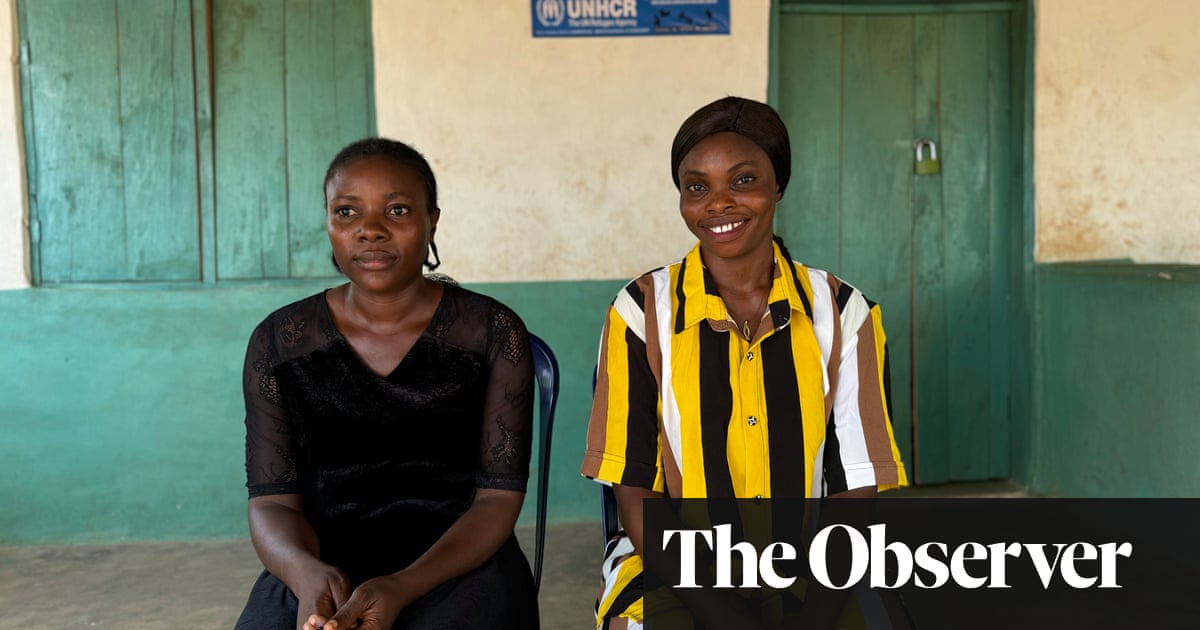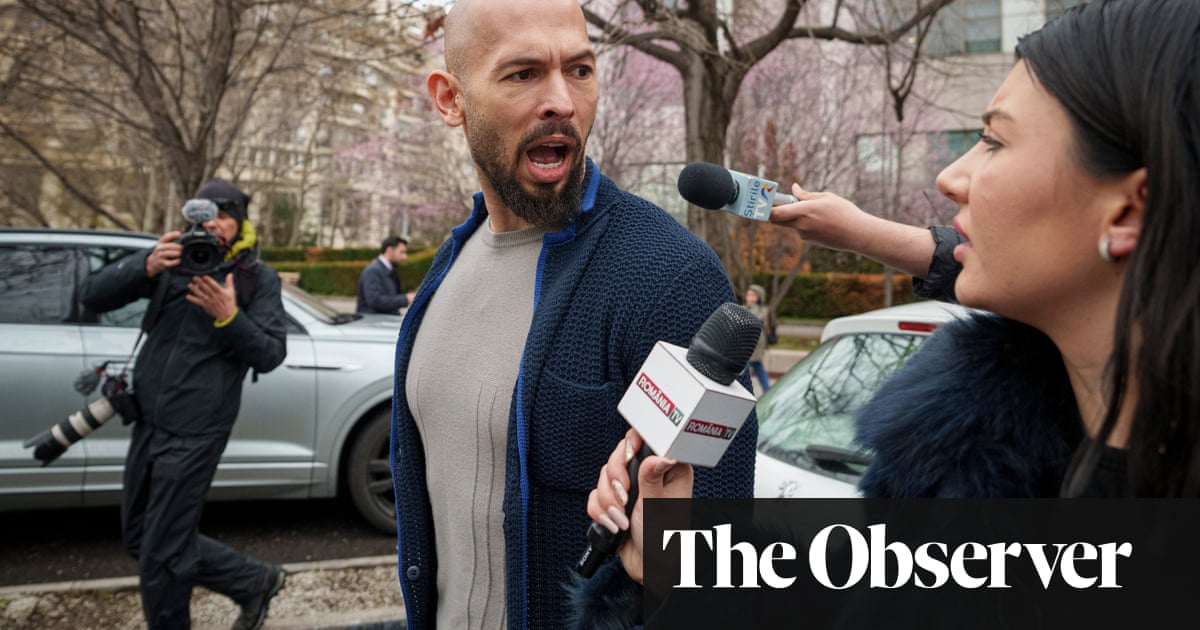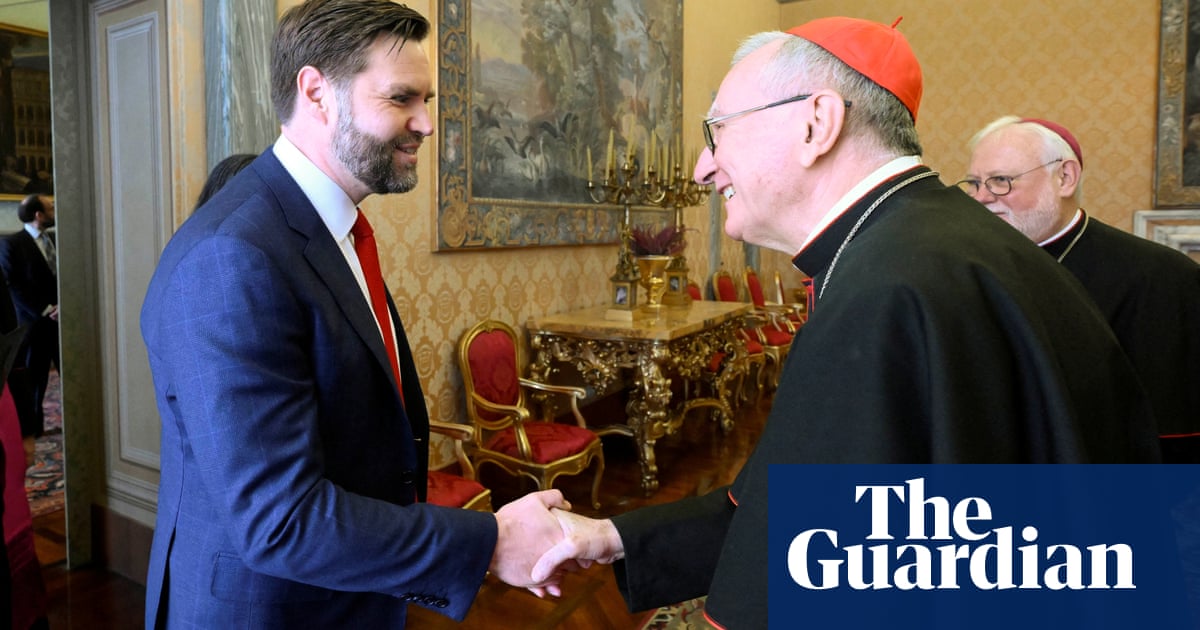In the penultimate episode of season two of The Traitors UK, Harry – a baby-faced army engineer – is given the choice between adding £7,000 to the collective prize pot, or taking it for himself.
He decides to share, saying that he’s been “a team player since the start” – and adding that “obviously, it’s more money to split” for their eventual triumph. What the audience knows, and most of Harry’s fellow players don’t, is that he is a Traitor, working against them – and only turning down the £7,000 because he feels confident in walking away with the entire £100,000.
Lisa Oakley, a psychologist and professor at Chester University, plays the clip of Harry’s stirring speech in her social psychology lectures, as a masterclass in manipulation. “What he’s actually building there is an image of himself as a Faithful, and it’s just beautiful,” she says. “Then, when you play it to the students and say, ‘Actually, he was a Traitor’… The language that people use, the way that they talk about themselves, is really important.”
The crash-course in human psychology presented by The Traitors UK is perhaps one reason for its success. The cloak-and-daggers gameshow was a surprise hit when it first aired back in November 2022, and went on to draw record audiences for its second season last January.

Notably, The Traitors caught on with people who didn’t ordinarily watch reality TV – perhaps because it actually reflects reality. Most of us have never competitively eaten entrails, or sung for our supper in front of Simon Cowell. Nearly everyone, however, has experience of having to get along with a group, win over a difficult room or tell a white lie to a friend.
“I’d hardly watched reality TV at all – I don’t know anything about the Love Islands and all that – but The Traitors did capture people who don’t generally have an interest,” says Ian Parsley, a public relations consultant (and former Northern Irish politician) who wrote about the series last year.
For Parsley, the many parallels between The Traitors gameplay and real-world group dynamics were key to the fascination – and a “superb demonstration of exactly what is right, and wrong, with human civilisation”. The heated but circular roundtable discussions, for example – where the players seek to identify and banish the Traitors among them – underscored “why meetings and committees fundamentally do not work” to reach effective decisions, Parsley says. Between the herd mentality and flawed logic on display, “they might as well have tossed a coin”, he adds.
One analysis did in fact find that the contestants’ decisions were “statistically indistinguishable from chance”, suggesting Faithfuls really would do just as well to target players at random as endure the roundtable deliberations.
It is proof of both the fiendish difficulty of the game and the psychological blindspots it exploits. For Oakley, The Traitors was such a sufficiently rich text that – together with Clea Wright and Kevin Hochard, her fellow psychologists at Chester University – she was inspired to start a podcast, Psychology of The Traitors.
One of the key influences they identified on the gameplay was the presence of “in-groups” and “out-groups”. “We tend to favour people who are like us – or who we think are like us,” says Oakley. In the Traitors US, featuring celebrity contestants, players formed explicit alliances on the basis of their past shows or networks: the Survivor alumni, the Bravo Housewives.
On The Traitors, however, the natural impulse to align with kindred spirits risks leading you astray, distorting your perception of other players. For example, Faithfuls often defend their friends or allies by saying they “could never be a Traitor”, even though the Traitors don’t self-select.
“Players never really seem to get their head around the fact that trustworthiness, and whether or not somebody’s a Traitor, are completely unrelated,” says Wright, who studies lying and deceptive behaviour. “If they decide they trust someone, they decide that person can’t be a Traitor – logic deserts people.”
The task is made more difficult by the challenges – which build a genuine team spirit between Faithfuls and Traitors – and the isolated yet immersive environment. Contestants struggle “to see it as a game”, says Wright, recalling their podcast interview with Ivan Brett, a Faithful on season one. “He was shocked at how important it was for him to feel liked, to be part of that in-group and not be ostracised.”
Similarly, in season two, another Faithful had an on-screen meltdown after being called a “sheep” (he later ended up getting a sheep tattoo, to show just how unbothered he was).
It demonstrates the power of social identity, and our need to belong, to cloud our judgment and derail decision-making. In season two, Jaz was dubbed “Jazatha Christie” by viewers for catching on to Harry’s treacherous game, but failed to rally his fellow Faithfuls in time to stop him.

“He assessed the situation entirely correctly, he didn’t allow his emotions to overrule, he was deductive – he really played a very good game,” says Hochard, head of psychology at University of Chester. “[But] he hadn’t fostered those links early enough, so he couldn’t effect the change.”
The psychologists found that many of the roundtable votes were decided by just one influential voice, causing a “domino effect” of consensus, regardless of the validity of the argument.
Late in season two, for example, the contestants concluded that a remaining Traitor is likely male – then all wound up voting for a woman. “There’s often these gaping holes … They mistake a feeling, or an idea that they have about somebody as evidence,” says Wright.
It’s not stupidity, she adds, but a reflection of the “incredibly difficult task” faced by the Faithfuls. While Traitors might struggle with the cognitive burden of having to lie (Wilfred, in season one, seemed to age years under the strain), they benefit from oversight and agency. The Faithfuls, on the other hand, “are essentially punching in a dark room, because they don’t have any information,” says Wright.
after newsletter promotion
It’s true that, across the many international formats of the game, Faithfuls have typically struggled. New Zealand’s first season was an exception, with three Traitors voted off in the first three episodes – a far better result than could be achieved by chance.

Dylan Reeve, who was eventually murdered by the Traitors, suggests that they might have been “more focused” than other Faithful groups. “We were taking the game seriously, not getting caught up in our own drama … No one told us to play that way, and we never discussed it – it was just how we all approached it.”
Though some of the contestants had pre-existing relationships (it being New Zealand, population 5 million), Reeve believes that had little effect over the outcome. “Even when you know someone well, you don’t usually practise detecting their lies … If I had to pick one thing that set us apart, I think it was probably communication: we were all communicating well and openly, and we paid close attention to the mechanics of the game around us.”
In the absence of evidence or leadership, subconscious biases can easily take over at the round table. Writing about the UK season two, Ranuli Jayawardhana observed that the contestants deemed “suspicious” by the group were often people of colour. “Obviously, the game is so emotionally charged – it brings up a lot of tension, and I think that sometimes manifests itself as microaggressions,” she says.

Jayawardhana points to Jaz’s failure to influence the group, relative to the Traitors Harry and Paul, both white. “It was incredibly revealing to see exactly who people trusted – whether it was on the basis of race, or that this person was more, quote-unquote, ‘normal’.”
Sometimes these judgments are overt. Host Claudia Winkleman herself has called the pattern of targeting of older women “problematic”. In season one, a woman was voted out for not cheersing along with the group, even after she pointed out that she was prevented from doing so by her limb difference. On The Traitors US, the first player to be eliminated was Peppermint, a trans woman and RuPaul’s Drag Race alum; she later said the other players had targeted her for being “the most different”.
To Jayawardhana, it’s proof of how greater diversity and representation on reality TV has not yet translated to all contestants being free to fully participate. “The herd mentality is more directed at ethnic minorities” than inclusive of them, she points out. “There’s still that undercurrent of ‘It’s us versus them.’”
But watching those dynamics play out on The Traitors may help to bring them to light, Jayawardhana suggests. “If you can see it on a screen, then you know it happens in person … I think it’s worth having these conversations, because it’s often unconscious.”
Indeed, those apparently off-the-cuff exchanges and unexpected eruptions are part of what makes the show so compelling and insightful. Like all reality TV, The Traitors is edited and manipulated to create characters and a storyline. But relative to other shows, the format seems thus far resistant to advance strategising: players can’t help but be exposed.
Wright agrees. It’s tempting to imagine from our sofas that we’d win hearts and minds as a Faithful, or escape detection as a Traitor, but, she says, “a lot of these psychological mechanisms that we talk about will apply unconsciously – whether we want them to or not”.

 3 months ago
88
3 months ago
88













































